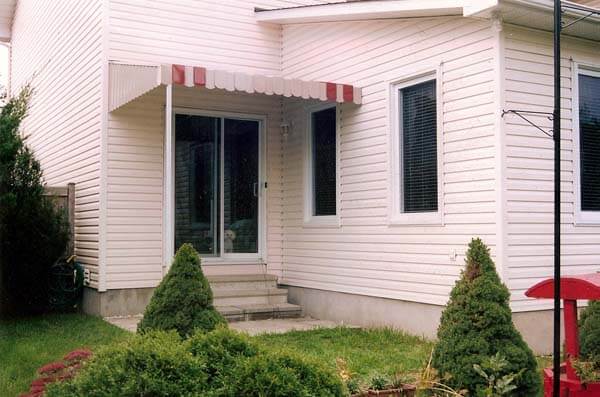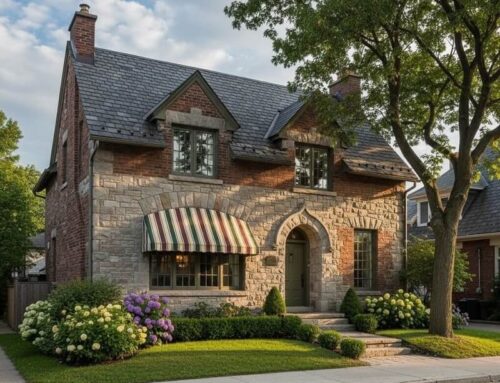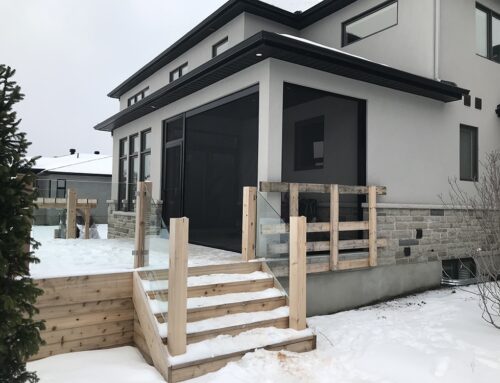The advantage of awnings when designing your outdoor space
Awnings are a great addition to any outdoor space. They help create areas for entertaining or lounging by the pool, allowing you to enjoy the warm weather while limiting direct sun exposure. In contrast, awnings can also help provide shelter on rainy days so that outdoor space can be enjoyed at any time. Of course, these are some handy reasons that make awnings a practical addition to outdoor space – but there are other advantages that contribute to the longevity of your home.

Window awnings can be helpful not only in adding character to the exterior of your home, but they can help protect older windows from letting in cold air or moisture. They can also help guard the inside of your home from excessive sunlight. Many people are attracted to window awnings for these more practical reasons.
Because awnings are fixated directly to your exterior walls, they serve as shelter not only for people but for the most important part of your home; the foundation. Fixed aluminum awnings are the most effective at keeping moisture away from your home. Because the ground surrounding your foundation is exposed to much less rain, snow and other environmental debris, the wear-and-tear on your foundation is significantly less when under an awning.
Your foundation is particularly at risk depending on the grading around your home and the types of plants that live around the edges of your home. Lots of bushes and gardens can be a beautiful exterior feature, but they also attract moisture to your home if they are planted against an external wall. The use of external awnings can help limit the amount of excess moisture that your foundation will be exposed to, especially if your property slopes towards your home (even at a very minimal degree), moisture is likely to draw towards your home with the potential to cause serious damage.
Water always finds a way in your house, and there are lots of opportunities for water to leak into your home. One problem spot is the gap between a raised garden bed and your house. Typically, there is a stone or brick barrier between the soil and the siding of your house, as a raised garden bed will higher than the concrete foundation. Your eaves will keep most of the water out of this gap; however, a heavy storm or wind can funnel water into that gap, and straight into your basement. A fixed aluminum awning provides an additional measurement in keeping the ground dry as it is closer to the ground than your eaves and extends out much further.
In the picture above, there is an awning above the back door. You can see how the awning protects the door from rain water, meaning you can keep the screen open on a rainy day without fear of rain water coming in. The awning also prevents water from pooling on the concrete. Concrete can be troublesome if it slants towards your house as it is going to send rain water straight towards your basement. The awning also keeps your stairs dry, meaning there is less chance of slipping.
Problematic damage can occur when your foundation is exposed to moisture such as:
- Leaks causing water to seep into your basement through the foundation or window wells
- Cracks or fractures causing sagging and weakness in your foundation leading to serious foundation problems in the future
- Mould can build up in the walls of your home, deteriorating the construction materials and creating a potentially unsafe living environment
If you notice sticky windows and doors, uneven or warped floors, cracks or bulges in walls or any signs of water damage, you may be experiencing moisture in your home due to foundation distress.
Fixed aluminum awnings can help keep moisture from getting into your house, particularly in troublesome areas like over garden beds, or improperly graded ground. Awnings also keep your windows at a more consistent temperature, so you’re less likely to get moisture buildup on window frames, which causes rot. If you are in the Ottawa area, contact Jans Awnings and Rollshutters for advice on how aluminum awnings can benefit you.




